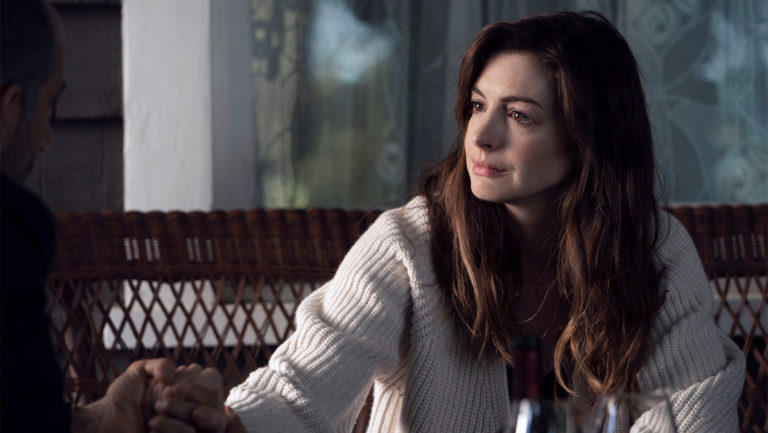
The Emmy nominations-round voting is around the corner, so it would be appropriate to post some of the TV series that I’ve covered, but it hasn’t been posted on our site yet. I’ll start with my interview with Actress Anne Hathaway on “WeCrashed.”
Synopsis : Inspired by actual events — and the love story at the center of it all. WeWork grew from a single coworking space into a global brand worth $47 billion in under a decade. Then, in less than a year, its value plummeted. What happened?
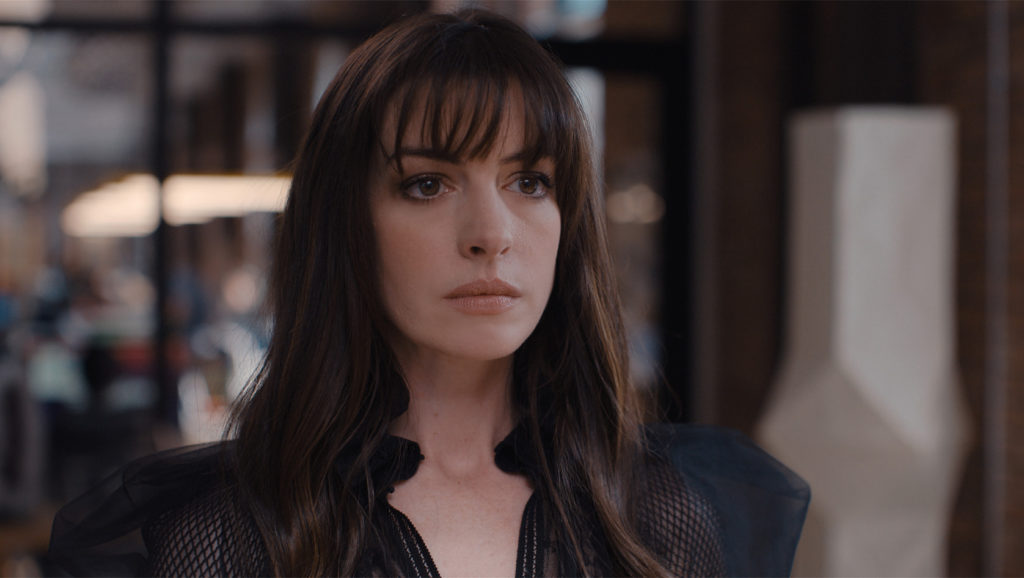
Interview with Actress Anne Hathaway
Q: I love the words of encouragement that Rebekah gives Adam. She sort of grabs his face and says “Fear is a choice.
You’re a supernova.” I guess the story in the media is that Adam was the magnetic one. But really, it was Rebekah arming her husband with the tools he needed that made WeWork what it was. Would you agree, and could Adam have done it all without her?
AH: Not only do I agree that I don’t think Adam would have been able to do it without her, I think Adam would be the first person to say that. And I think he would mean it. I think Rebekah was absolutely crucial in his development as a successful entrepreneur. She was the person that got him to focus, that got him to share his vision. I think also she was responsible for giving him a lot of the language that at least initially allowed him to connect with people.
Q: These young entrepreneurs from Silicon Valley and the unicorns are now a huge subject for podcasts and books and also TV shows. So why do you think this type of person became such a good character to explore?
AH: I think we’re all really fascinated by charismatic people and people who have that sort of strange ability to get other people to do what they want. And I think there’s something about the fact that we’re living in a time when we’ve never been so globally connected.
I mean, I’m just looking at all of you and I’m trying to figure out how many time zones there are up here right now. I mean, it’s kind of wild, right, that we’re all able to do this right now.
So if you are someone who’s charismatic and you do have the reach to connect with a lot of people, that’s a very powerful thing. Given the timing that we’re living through in late-stage capitalism, people are looking to invest in this. So it doesn’t surprise me that we’re seeing this happen again and again and again.
Q: One of the interesting things that happened when this kind of WeWork scandal started to come out in the media is that there was a lot of focus on how weird Rebekah was, and her spirituality, all that stuff. But what’s really great about this series is that we get to look into why she makes the decision that she does, and her internal struggle as well. What was it like to look at that aspect of the story and build that story for Rebekah, between yourself and the rest of the cast and the crew?
AH: Whenever I play a character whether or not it’s a real person or not, I always have to be very mindful that I don’t judge them. That won’t help me play them — and then, I try my best not to do that with people in real life.
And in this case, I was very lucky to speak to a lot of people who knew Rebekah. Based on the media reports of her, I kind of thought I knew what to expect when speaking with them. The word almost everybody used to describe her was “sweet”. You could have knocked me over with a feather, I was so surprised to hear that.
But I remember thinking, this is a very complex person. And I felt even greater resolve, just on a human-to-human level, to really give her the dimensionality that she does have and to respect the truth where it lay. You know, honor the fact that the behavior was what it was and the outcome of the story is what it is. — but to almost grace her good intentions throughout.
Because when you speak to people that know her, they all say the same thing, which is, “She is sincere” and “she didn’t mean everything that she said”. Anyway, it didn’t behoove me to label her as “weird” or to judge her in any way, but to really understand why somebody would be the way that she is.
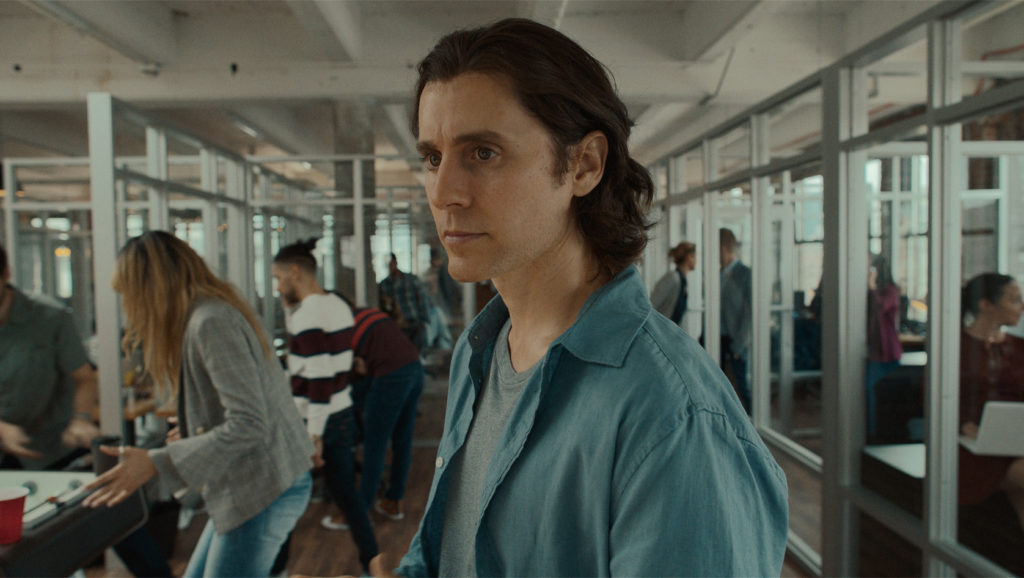
Q: What kind of research work did you do? Did you meet someone? How did you do it?
AH: A combination of things. I worked with a wonderful researcher called Amy Hammond, I’ve worked with her on several projects now. She was really integral in terms of helping me understand the world that Rebekah comes from. It’s a world that I glimpse now and then because of where my life has gone, but it’s not a world I was born into. I think if you’re not from that world, perhaps some of the things seem heightened from the outside. We all have to remember that if you’re born into that world, they don’t seem strange. So I wanted to really understand what her “normal” was.
And then I spoke with a lot of people, as I mentioned, that knew her and they were able to give me a lot of insight as to who she was and how she ticked, and what it was like to know her.
Q: Watching “WeCrashed”, I could see a good chemistry between Rebekah and Adam. How was working with Jared?
AH: Oh, it was so much fun. We had a lot of fun working together. I’d like to think that Jared and I would get along. But to be perfectly honest, I haven’t spent much time with him. He was never himself on set, he was always Adam. Jared’s a very immersive actor, so he stayed in character the entire time. But even within that character, I was always treated with complete sweetness, total support. As important as his performance was to him, my performance also mattered to him just as much.
Without a lot of chitchat in between takes, we were constantly communicating. We were really in each other’s corner. I was so inspired by the work that he was doing that it made me want to give everything I had in order to represent this very real love that exists between Adam and Rebekah.
Q: Rebekah also founded WeGrow, which is a private school. What is your fascination with Rebekah’s vision for WeGrow?
AH: I think it’s very clear from all of Rebekah’s pursuits that she really wanted to be an agent of positive change in the world. Now whether or not she has yet succeeded in that is not really for me to comment. I think the results have so far sort of spoken for themselves.
But it’s very important to remember that these are people who are currently living and they might go on to do other things with their lives. We have to remember to afford them the opportunity to have grown from this.
In terms of WeGrow, I think she was seeking an alternative to what she saw as education that was focused solely on the intellect, and she wanted to focus on the whole child. At least, that was her intended goal.
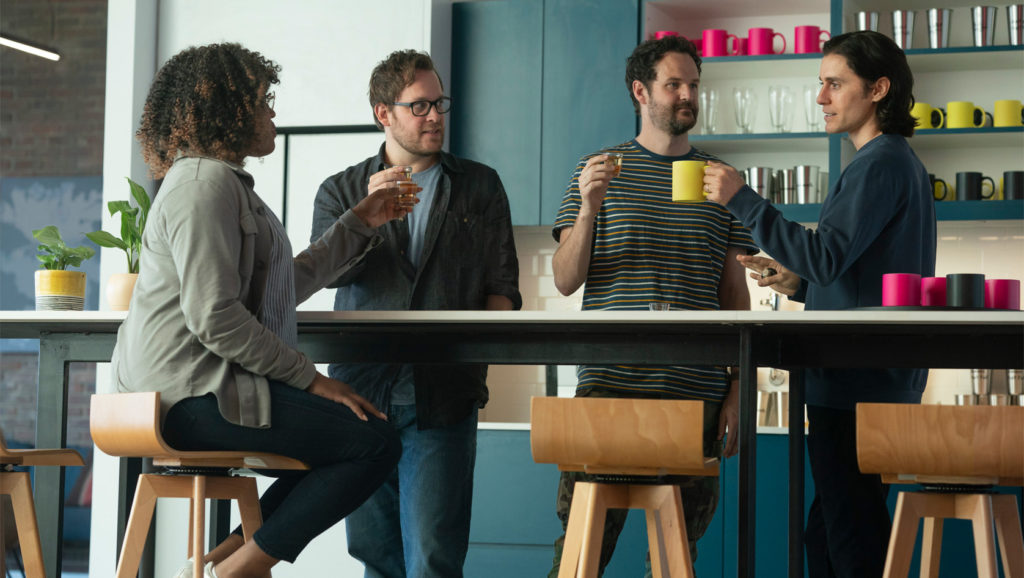
Q: Regarding yourself as a character, how do you win the game of life and have a mission?
AH: By not thinking life is a game. I think that’s probably the first way to do it. But yeah, the concept of winning at life kind of scares me. I’m not really someone who believes in existence for conquering. I may be a little bit softer than that. I’m very grateful, I’m very curious. But I don’t know. I sort of think whatever you have going on, if you have any kind of peace and gratitude inside of yourself, then that could be considered winning.
Q: Yesterday was International Women’s Day. In the line of female empowerment, I need to ask about Rebekah because in this film, this character, it’s clear to see a second face in the business. She is a business woman as well as a responsible mother of five. Do you think we can see her conflicts in other real women?
AH: Do I think the issues that Rebekah faces are typical of those faced by most women worldwide?
I think you’d have to strain to compare the two. I think most women do not have the resources that Rebekah has, they don’t have the help that she has. I think life would be much more of a struggle for women who do not have the resources that Rebekah has.
Q: I have to say your episode “Modern Love” is my favorite. But I feel like the show for you is like making a short movie. So if I compare this show, where you have a lot of episodes to develop the character, how is it a different experience for you as an actor from making a film?
AH: Thank you, I really appreciate your words about “Modern Love”.
There’s a lot of trust in this show. I felt very lucky to be working with Lee [Eisenberg] and Drew [Cevello=the writers], who I have to say to any actor considered working with them: they should. Not only are they wonderfully talented, they’re also true to their word. Everything they said they were going to do with the character of Rebekah, they did.
Which turned out to be really important, because when I signed on, I had only read a handful of episodes. The entire series hadn’t been written yet. I’ve never signed on to a film project where I hadn’t been able to read the entire script. So that was very different for me.
I was also very grateful to them because they were really generous in terms of inviting me into the collaboration process. And while I don’t think I affected where the character wound up, I think that was always their intention and their focus in their work. I know that they let me have an influence on how she got there.
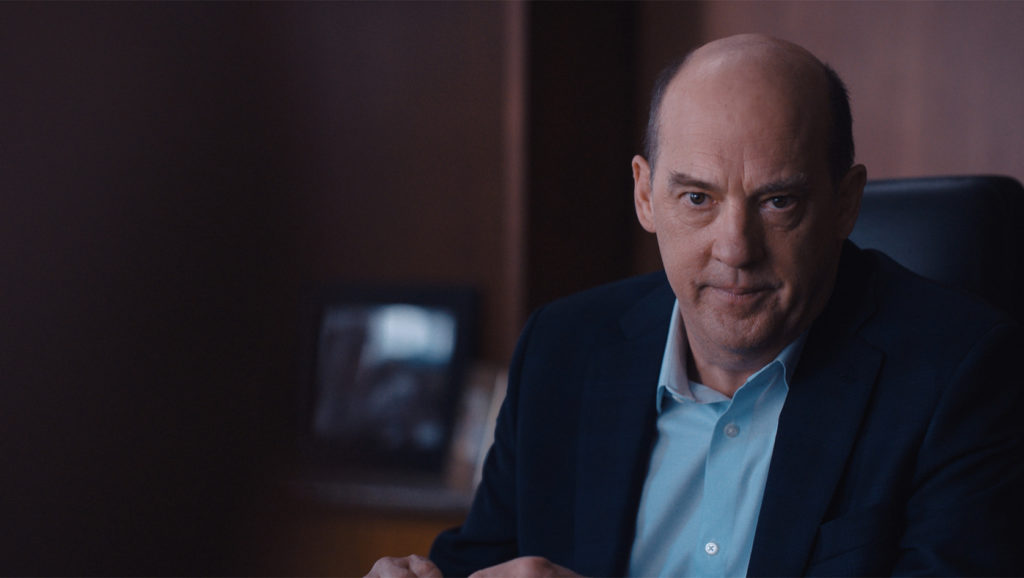
Q: Do you think about how the real Rebekah might receive this show on your portrayal of her?
AH: I have, yes. I just felt very focused on making sure that I was fair and that I told the truth. When I was researching Rebekah, I really focused a lot on her spiritual life because she was very open about how significant that was to her as a person.
And we don’t touch on it in the series, but Kabbala was very important to her for a period of time in her life, so I’m reading books about Kabbalah. I came across this phrase which was “Judge all persons favorably.”
What that means to me is, be able to see people as they are. Be able to see behavior for what it is. But assume the best of the person. When they make that decision, assume that there’s a good reason why they’re doing the thing that they’re doing. Don’t leap to a harsh judgment about someone. And I made sure every single day that I was creating my interpretation of Rebekah according to that outlook.
Q: Want to know about them. Jared is such an immersive actor, as you prepared for the role how did you respond to that?
AH: I responded very positively and instantaneously to it. I’d been filming for two days when Jared started, and mainly flashback sequences.
I kind of felt like I was still finding the character. And then Jared showed up as Adam, and it was like something opened inside of me and Rebekah was there.
I thought there was something really beautiful, given how strong we know their relationship to be, that my Rebekah didn’t land inside of me until Adam showed up. Because that’s how I would imagine they would describe it.
Jared’s commitment to his process and his craft is inspiring, and his fearlessness made me braver. There were so many times when it felt like we were stepping off a cliff together and just falling, and we had each other’s back. It was an incredible experience.
Q: This series is obviously based on Adam and Rebekah. But what I was also interested in was Rebekah’s relationship with Elishia, America Ferrera’s character because it’s such a really great turning point for Rebekah’s story. What was it like to explore that friendship in the later half of these years and how it relates to Rebekah’s progression through her work?
AH: That whole storyline was so heart-breaking for me. Just because I think that it would be very difficult to not be able to trust whether or not people were friends with you because of you or because of who you were married to. I had a lot of compassion for that storyline.
And America Ferrera is a dream — I know you all want to know. She is incredible, she’s one of the finest actresses I’ve ever worked with, and I just can’t say enough nice things about her.
Check out more of Nobuhiro’s articles.
Here’s the trailer of the film.

